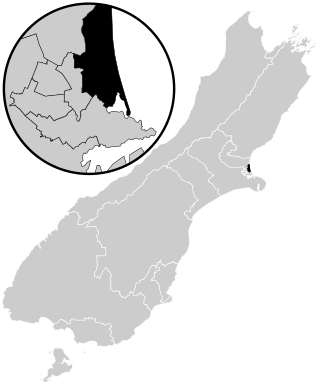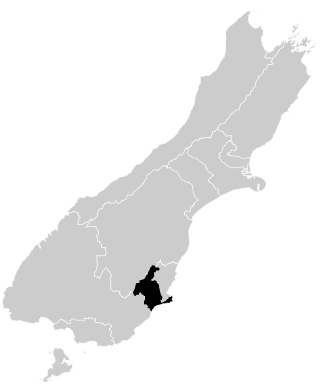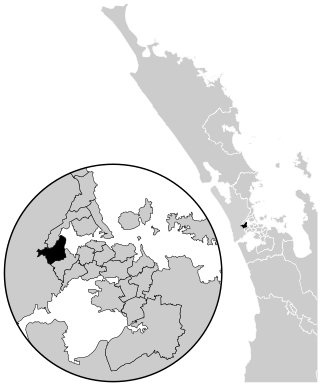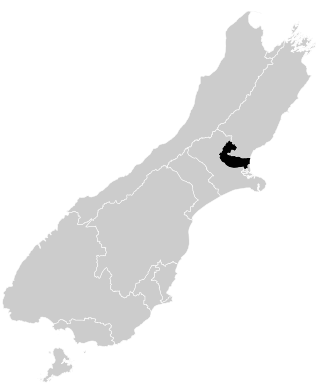The Alliance was a left-wing political party in New Zealand. It was formed at the end of 1991 by the linking of four smaller parties. The Alliance positioned itself as a democratic socialist alternative to the centre-left New Zealand Labour Party. It was influential throughout the 1990s, but suffered a major setback after its founder and leader, Jim Anderton, left the party in 2002, taking with him several of its members of parliament (MPs). After the remaining MPs lost their seats in the 2002 general election, some commentators predicted the demise of the party.

The 1999 New Zealand general election was held on 27 November 1999 to determine the composition of the 46th New Zealand Parliament. The governing National Party, led by Prime Minister Jenny Shipley, was defeated, being replaced by a coalition of Helen Clark's Labour Party and the smaller Alliance. This marked an end to nine years of the Fourth National Government, and the beginning of the Fifth Labour Government which would govern for nine years in turn, until its loss to the National Party in the 2008 general election. It was the first New Zealand election where both major parties had female leaders.

The 1996 New Zealand general election was held on 12 October 1996 to determine the composition of the 45th New Zealand Parliament. It was notable for being the first election to be held under the new mixed-member proportional (MMP) electoral system, and produced a parliament considerably more diverse than previous elections. Under the new MMP system, 65 members were elected in single-member districts by first-past-the-post voting, while a further 55 "top-up" members were allocated from closed lists to achieve a proportional distribution based on each party's share of the nationwide party vote.

Paul Egerton Piesse is a former co-leader of the Alliance, a New Zealand political party, and union activist.

The 1905 New Zealand general election was held on Wednesday, 6 December in the general electorates, and on Wednesday, 20 December in the Māori electorates to elect a total of 80 MPs to the 16th session of the New Zealand Parliament. A total number of 412,702 voters turned out, with 396,657 voting in the European electorates.

The 2008 New Zealand general election was held on 8 November 2008 to determine the composition of the 49th New Zealand Parliament. The liberal-conservative National Party, headed by its parliamentary leader John Key, won the largest share of votes and seats, ending nine years of government by the social-democratic Labour Party, led by Helen Clark. Key announced a week later that he would lead a National minority government with confidence-and-supply support from the ACT, United Future and Māori parties. The Governor-General swore Key in as New Zealand's 38th Prime Minister on 19 November 2008. This marked the beginning of the Fifth National Government which governed for the next nine years, until the 2017 general election, when a government was formed between the Labour and New Zealand First parties, with support on confidence and supply by the Green Party.

Christchurch Central is a New Zealand parliamentary electorate in the South Island city of Christchurch. The electorate was established for the 1946 election and, until 2011 had always been won by the Labour Party. Since 2008, the incumbent was Brendon Burns but the election night results for the 2011 election resulted in a tie; the special vote results combined with a judicial recount revealed a 47-vote majority for Nicky Wagner, the National list MP based in the electorate. Wagner significantly increased her winning margin in the 2014 election after having declared the electorate "unwinnable" for National earlier in the year following a boundary review. At the 2017 election Wagner lost the seat to Labour's Duncan Webb, who retained it at the 2020 election.

Christchurch East, originally called Christchurch City East, is a current New Zealand parliamentary electorate. It was first created for the 1871 election and was abolished for two periods, from 1875–1905 and again from 1946–1996. It was last created for the introduction of the MMP voting system for the 1996 election. The current MP is Reuben Davidson, a member of the New Zealand Labour Party who was first elected in the 2023 New Zealand general election.

Dunedin South is a former New Zealand parliamentary electorate. It first existed from 1881 to 1890, and subsequently from 1905 to 1946. In 1996, the electorate was re-established for the introduction of MMP, before being abolished in 2020.

Helensville was a New Zealand parliamentary electorate in the Auckland region, returning one Member of Parliament to the House of Representatives. The electorate was first established for the 1978 election, was abolished in 1984, and then reinstated for the 2002 election. The seat was won and held by John Key through his term as prime minister. Chris Penk of the National Party held the seat from the 2017 general election until its abolition in 2020, when it was replaced with the new Kaipara ki Mahurangi electorate, which Penk also retained.

Te Atatū is a parliamentary electorate, returning one Member of Parliament to the New Zealand House of Representatives. The current MP for Te Atatū is Phil Twyford of the Labour Party.

Waimakariri is a New Zealand parliamentary electorate, formed for the 1996 election and returning one Member of Parliament to the New Zealand House of Representatives. The MP for Waimakariri is Matt Doocey of the National Party. He has held this position since the 2014 election and takes over from Kate Wilkinson, who defeated Clayton Cosgrove (Labour) in the 2011 election.

Waitakere was a parliamentary electorate, returning one Member of Parliament to the New Zealand House of Representatives. The electorate was first formed for the 1946 election and existed until 2014, with breaks from 1969 to 1978 and from 1987 to 1993. The last MP for Waitakere was Paula Bennett of the National Party, who had held this position since the 2008 election.
Seventy of the one hundred and twenty members of the New Zealand House of Representatives elected in New Zealand's 2008 general election will be from single member constituencies, an increase of one electorate seat from 2005. The initial composition of the 2005 Parliament gave the Labour and National parties each 31 constituencies, the Māori Party four and ACT, United Future and the Progressive Party one each.

The 2011 New Zealand general election took place on Saturday 26 November 2011 to determine the membership of the 50th New Zealand Parliament.
The 2011 New Zealand voting system referendum was a referendum on whether to keep the existing mixed member proportional (MMP) voting system, or to change to another voting system, for electing Members of Parliament to New Zealand's House of Representatives. It was held on 26 November 2011 in conjunction with the 2011 general election.

The 2014 New Zealand general election took place on Saturday 20 September 2014 to determine the membership of the 51st New Zealand Parliament.

The 50th New Zealand Parliament was elected at the 2011 general election. It had 121 members, and was in place from December 2011 until September 2014, followed by the 2014 general election. The first sitting of the 50th Parliament was held on 20 December 2011, where members were sworn in and Lockwood Smith was elected Speaker of the House. This was followed by the speech from the throne on 21 December. John Key continued to lead the Fifth National Government. Following the resignation of Smith, David Carter was elected Speaker.
67 electorate members of the New Zealand House of Representatives were to be elected in the general election on 27 November 1999. The tables below show the candidates for each electorate. Incumbent electorate MPs are highlighted in blue, and those candidates who were members of the previous parliament via their party list—regardless of which electorate they previously contested—are highlighted in red.















